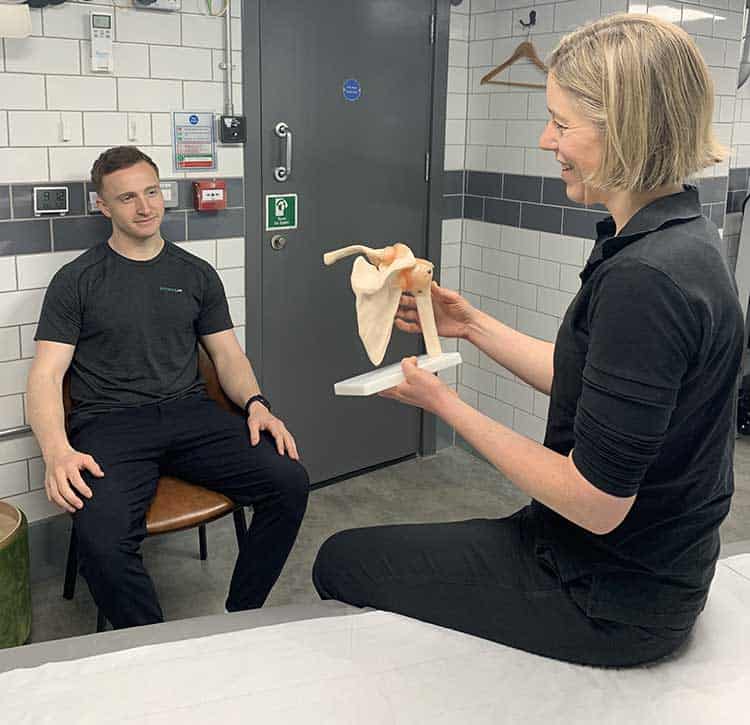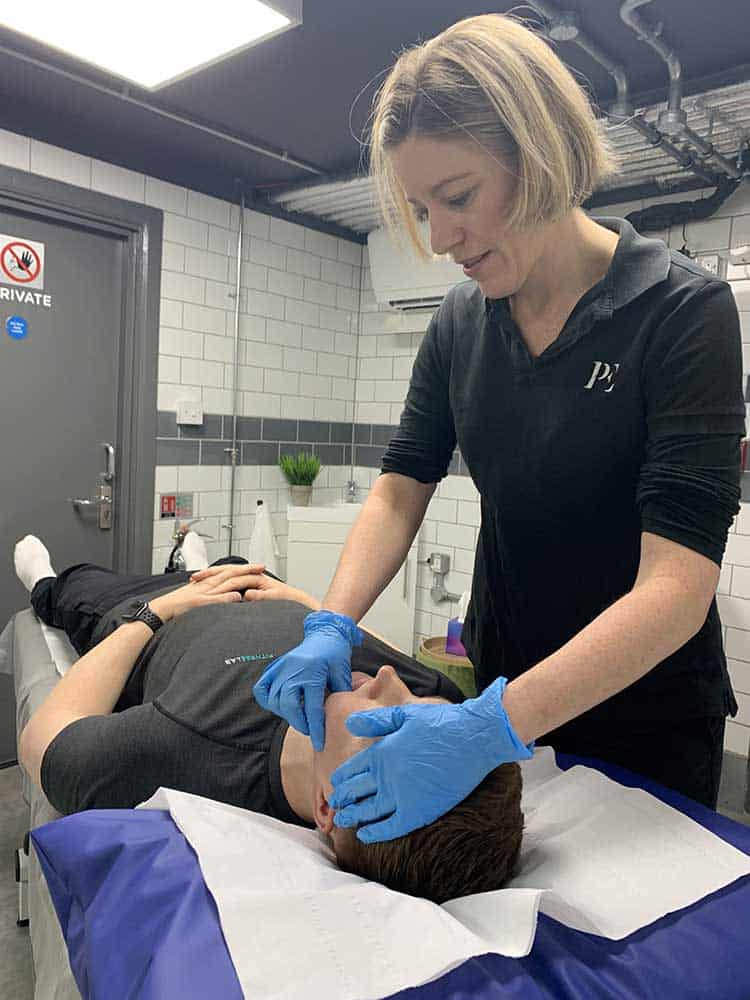Menu
close
hello world!
TREATMENTS
Menu
POST-OP
Menu
CONDITIONS
Menu
Our physiotherapist Sam Bacon has a special interest in the rehabilitation of people who have had a head and neck cancer diagnosis and treatment. She previously worked full-time in Head and Neck Cancer and more recently, has collaborated with the Guy’s Cancer Academy (Guy’s and St Thomas NHS Trust) to design two online introductory courses, with the aim of upskilling health professionals who are new to the field of Head and Neck Cancer.
Head and neck cancer refers to a tumour that is located in the head and neck region, for instance, in the oral or throat region. Despite the name, head and neck cancer does not include a tumour in the brain or spinal cord.
The most common type of cancer is a squamous cell carcinoma, which usually occurs in tissue lining, for instance, the lining of the airway or inside of the mouth.


Cancer treatment often includes a surgery to remove the tumour, as well as nearby lymph nodes located in the neck (known as a neck dissection). This can cause pain, stiffness and weakness in the neck and shoulder region. Physiotherapy can help to regain movement and strength in the neck and shoulder, as well as the donor site (if tissue has been taken from another part of the body to reconstruct the area where a tumour was removed).
Sometimes cancer treatment (or the tumour itself) can cause a restriction in mouth opening, which is known as ‘trismus’. Physiotherapy treatment aims to reduce or prevent trismus from occurring. Treatment is tailored to each individual but can include stretches and exercises, joint mobilisations, specialist massage techniques, or the prescription of a medical mouth stretching device.
Radiotherapy and chemoradiotherapy are also forms of cancer treatment. Side effects include fatigue, weakness and also a stiffening up of the skin and muscles exposed to radiation, a process called radiation fibrosis. Radiation fibrosis is often a delayed effect and can take months or years to develop. Physiotherapy can help to regain some strength and flexibility in an area that has stiffened up, as well as address factors that can help to manage cancer-related fatigue.
One of the over-arching aims of Physiotherapy treatment is to help a person to get back to doing some of the things they were able to do before their cancer diagnosis.
At Physical Edge, we understand that recovering from head and neck cancer treatment isn’t just about managing physical symptoms—it’s about supporting your journey back to strength, confidence, and daily life. Our team is here to provide personalised, compassionate care tailored to your unique needs, whether you’re dealing with pain, fatigue, weakness, trismus, or the long-term effects of radiation therapy.
You’ll receive one-to-one treatment, with a clear plan designed around your goals. We take a holistic approach, combining expert hands-on therapy with guidance, education, and exercises to help you regain movement, build strength, and feel more like yourself again. Whether you’re newly out of treatment or further along in your recovery, you can count on our expertise and support every step of the way.
Ready to start your recovery journey? Book a consultation today and take the first step towards regaining your movement and comfort.